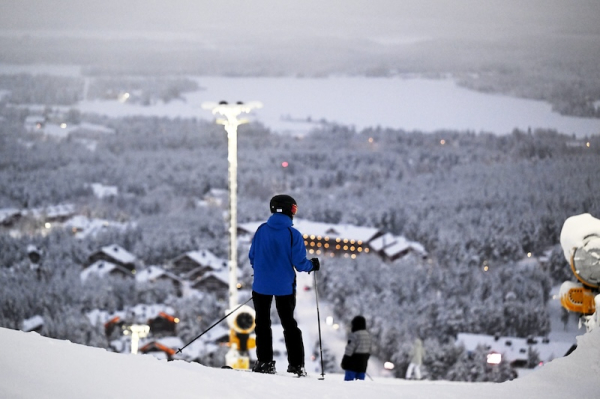
A skier at the Levi ski resort in Kittilä. LEHTIKUVA
- Previous Article One in three Finns open to cash-in-hand renovations, survey finds
- Next Article Government announces €170m in new cuts to social and healthcare services
Seasonal workers in Finnish Lapland are facing increasingly severe exploitation, according to multiple reports received this winter by the Service Union United (PAM). Issues include overcrowded housing, excessive accommodation fees, and unfair charges for minor damages. Police in Lapland have confirmed one ongoing criminal investigation into a case classified as extortion.
“This winter we’ve seen cases that are more serious than before,” said Henna-Kaisa Turpeinen, regional manager at PAM.
“Some resemble earlier incidents in the berry-picking sector, where workers were systematically taken advantage of.”
According to Finnish law, extortion includes charging unreasonably high fees by exploiting a person’s vulnerable position or lack of knowledge. Police declined to comment on details of the current investigation but confirmed the complaint involves a foreign seasonal worker.
In previous years, Lapland police have received only two similar complaints, neither of which resulted in prosecution.
One recurring concern is the quality and cost of employer-provided accommodation. In several cases reviewed by Yle, multiple seasonal workers were housed in small apartments with inadequate facilities.
In one instance, 25 people were housed in a flat with nine bedrooms and only two toilets. The kitchen lacked a proper oven, and residents paid €450 each for a shared room. The property was provided by a major national employer.
Francisco dos Reis Silva, a seasonal worker from Portugal, said his experience working in Rovaniemi was dominated by discomfort in shared accommodation. He was charged €300 per month for a bed in a shared room — €500 for a private room, which was not available. His room had only 30 centimetres of space between beds.
“We couldn’t all fit into the kitchen at once,” he said. “People worked different shifts, so it was hard to rest properly. It was uncomfortable.”
After a month, he found his own flat, which cost slightly more but offered proper privacy. Still, he described the overall experience in Lapland as disappointing.
“I wouldn’t come back unless it were the last option. Things weren’t done properly,” he said.
Reis Silva’s comments reflect wider concerns about the region’s capacity to handle surging tourism and demand for seasonal labour. He believes the tourism sector in Rovaniemi is overheated — and that the pressure affects workers, tourists, and residents alike.
Turpeinen said PAM has received hundreds of contacts this season alone from workers in Lapland. Many involve unclear contracts, poor vehicle conditions, and inflated claims for minor car accidents involving company vehicles.
Some workers have been charged large sums for small incidents, such as sliding into a ditch or scratching a vehicle. Many come from abroad and are unfamiliar with Finnish labour laws or their rights as employees.
“Some employers, particularly newer or foreign-owned companies, don’t understand how the Finnish labour market works,” said Turpeinen. “And many workers don’t know what is acceptable.”
While some companies follow regulations and treat workers fairly, PAM warns that serious gaps in oversight remain. The union says local authorities and national regulators must strengthen inspections and enforcement, especially as tourism demand continues to grow.
HT
- Previous Article One in three Finns open to cash-in-hand renovations, survey finds
- Next Article Government announces €170m in new cuts to social and healthcare services
Source: www.helsinkitimes.fi
